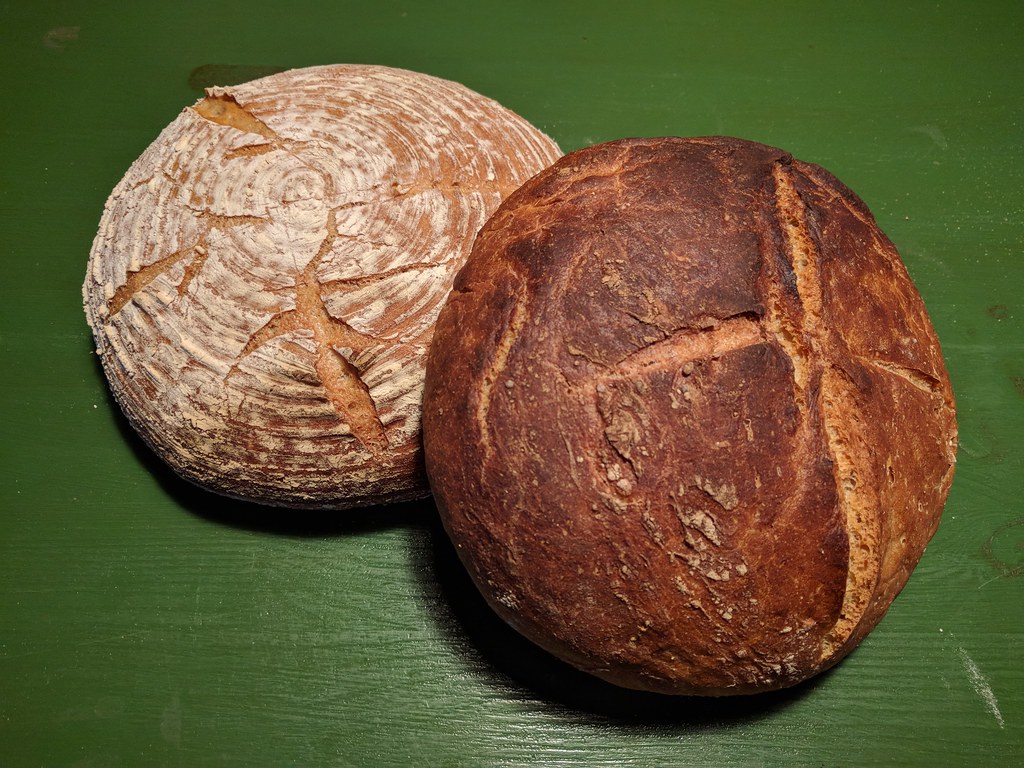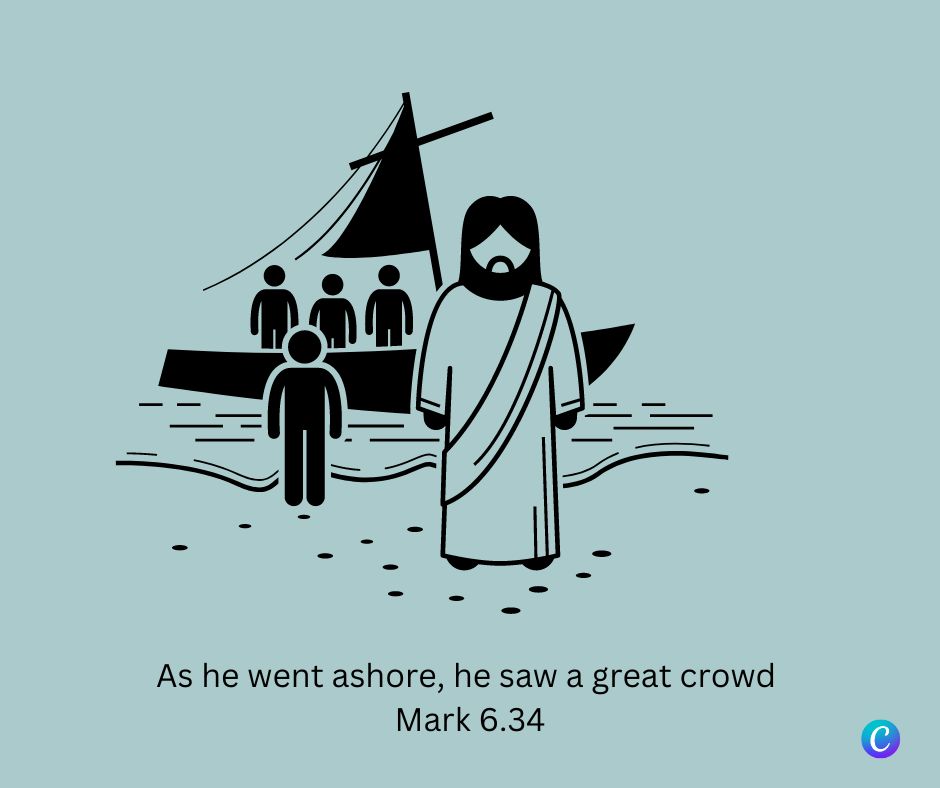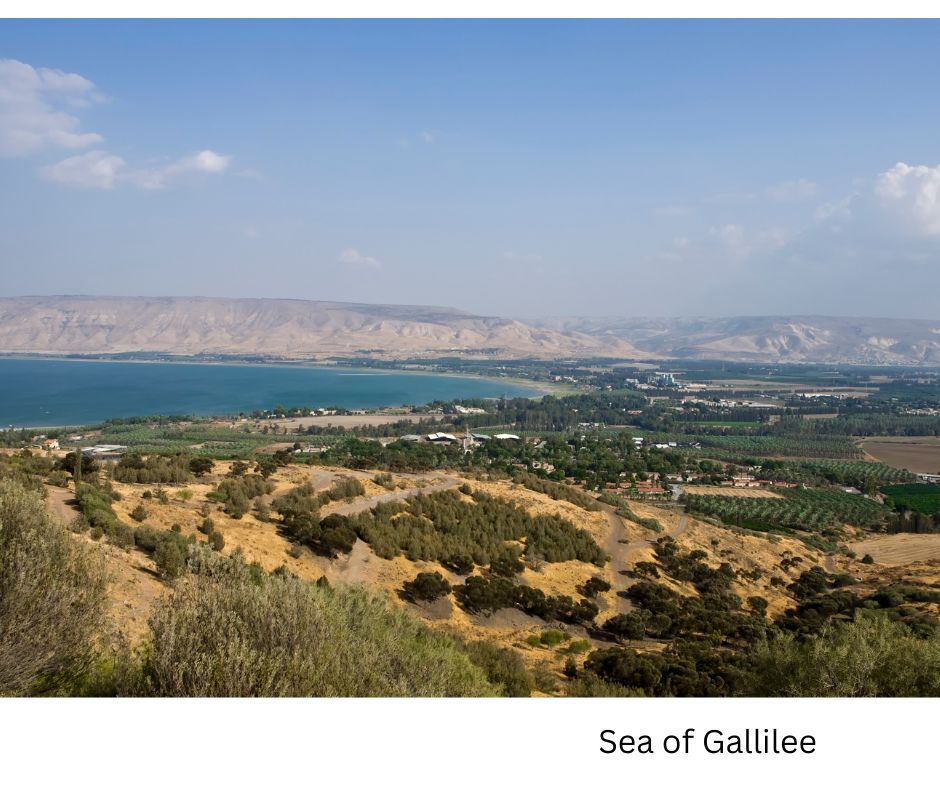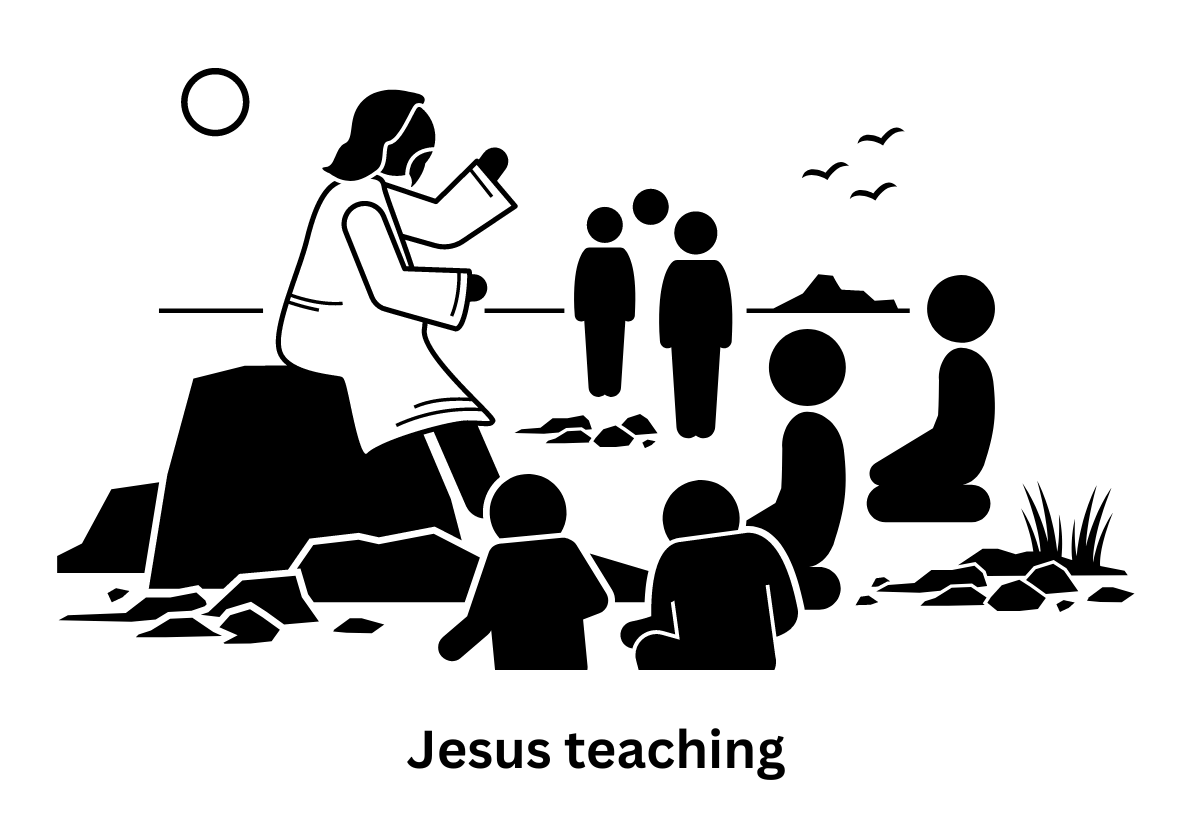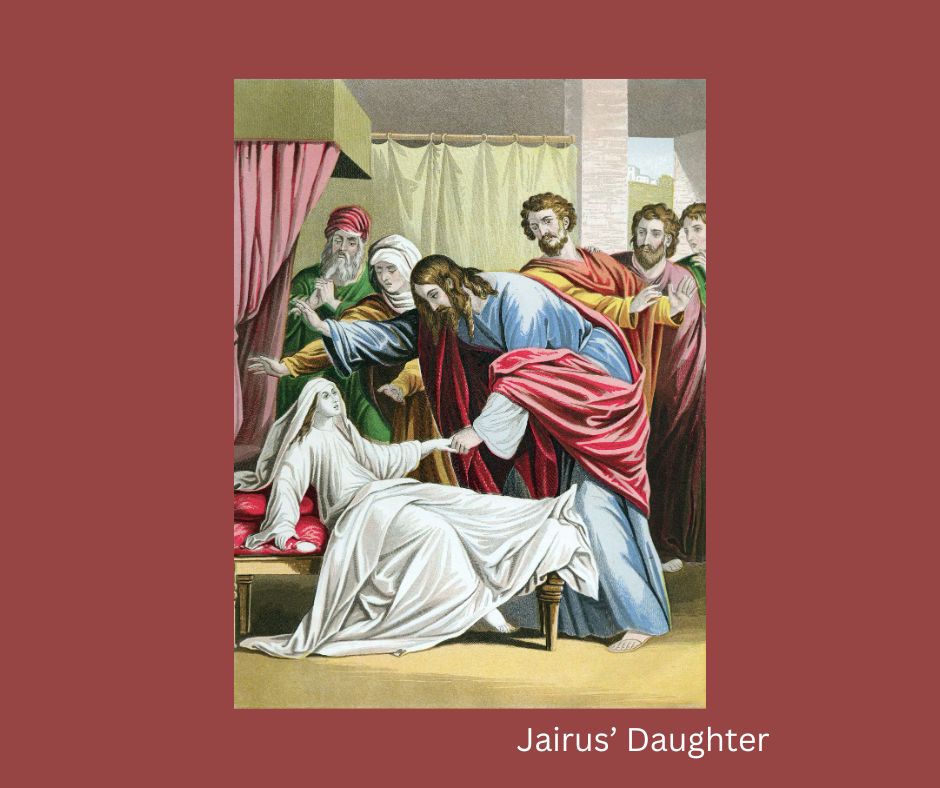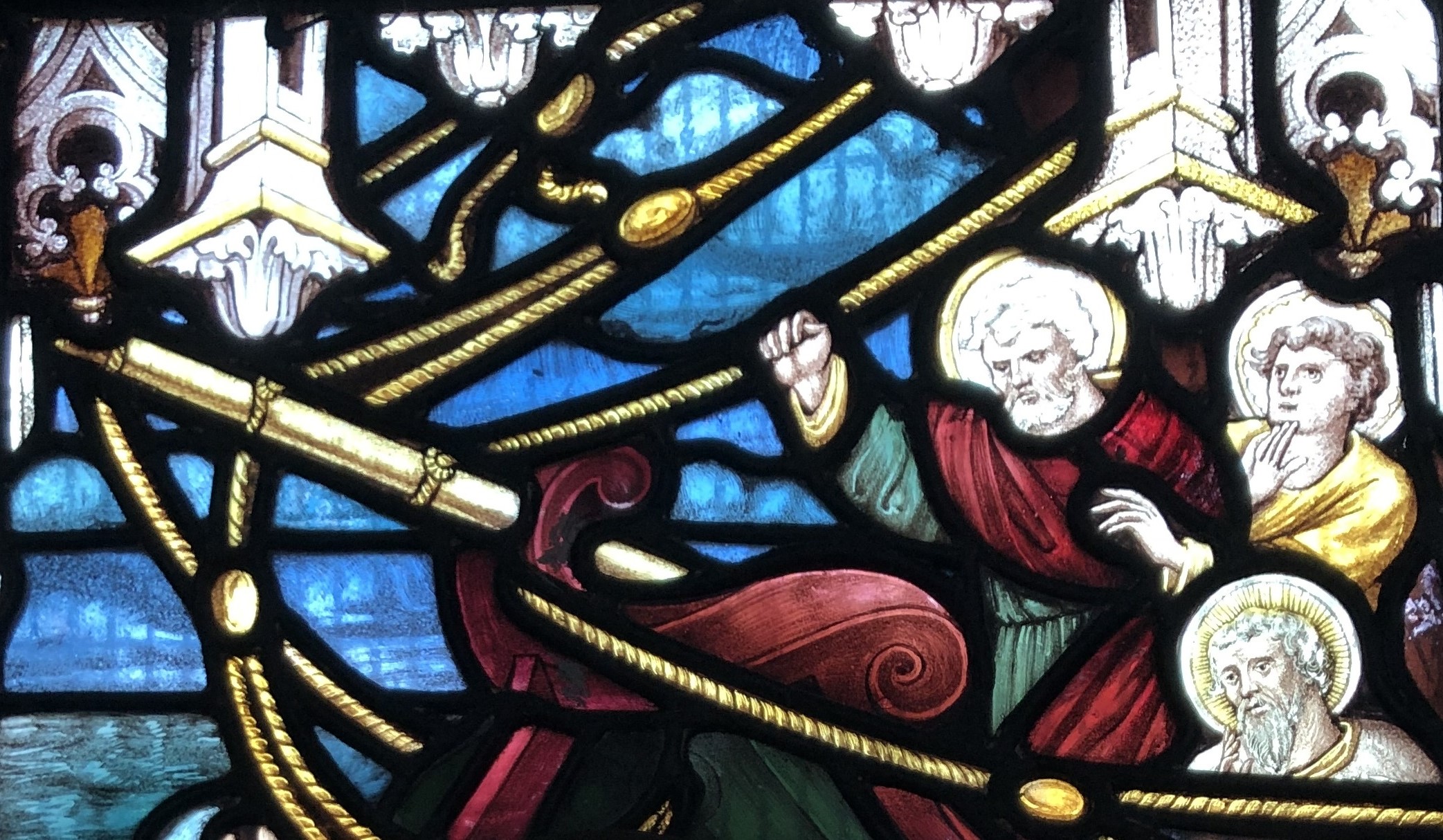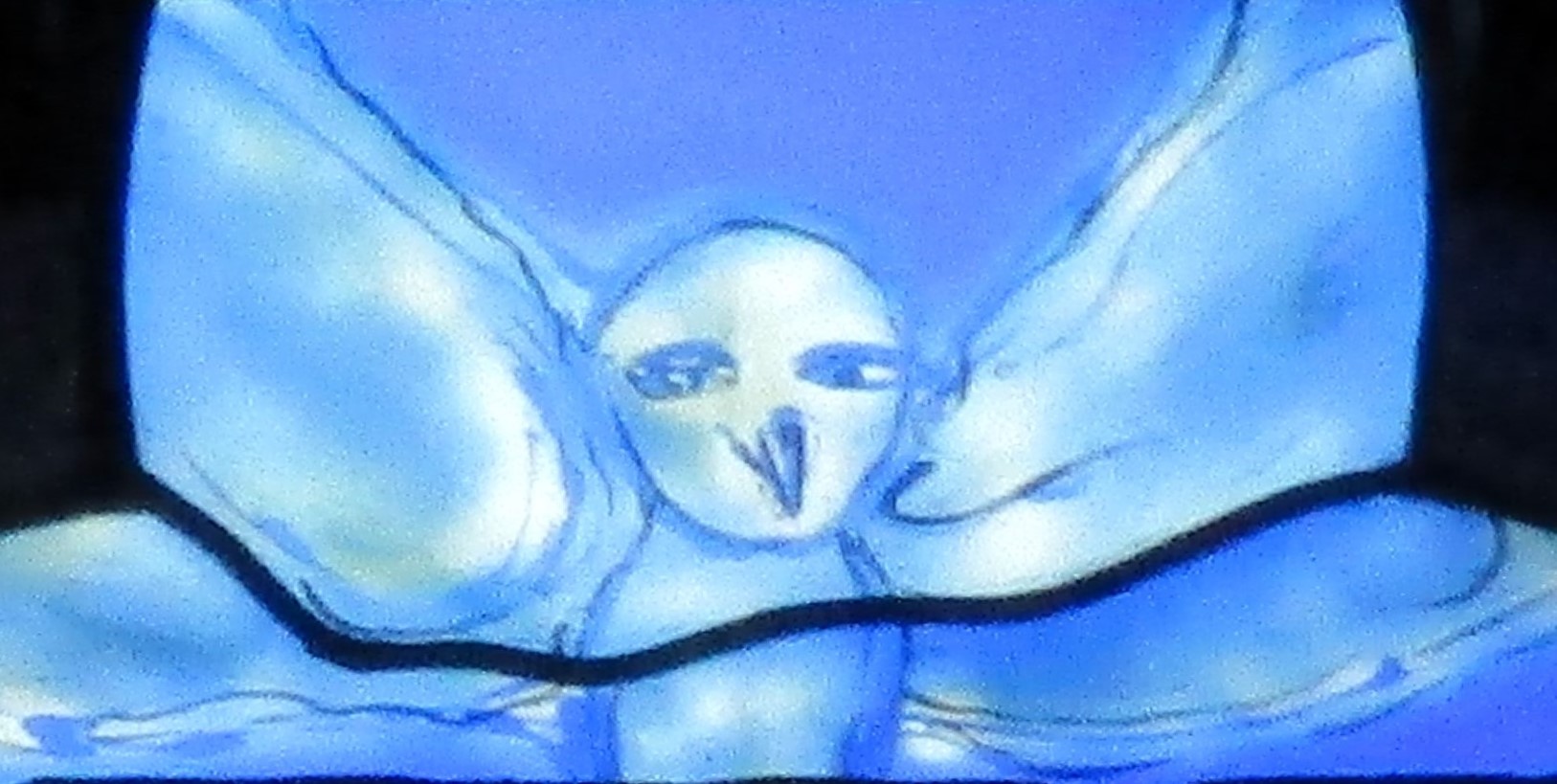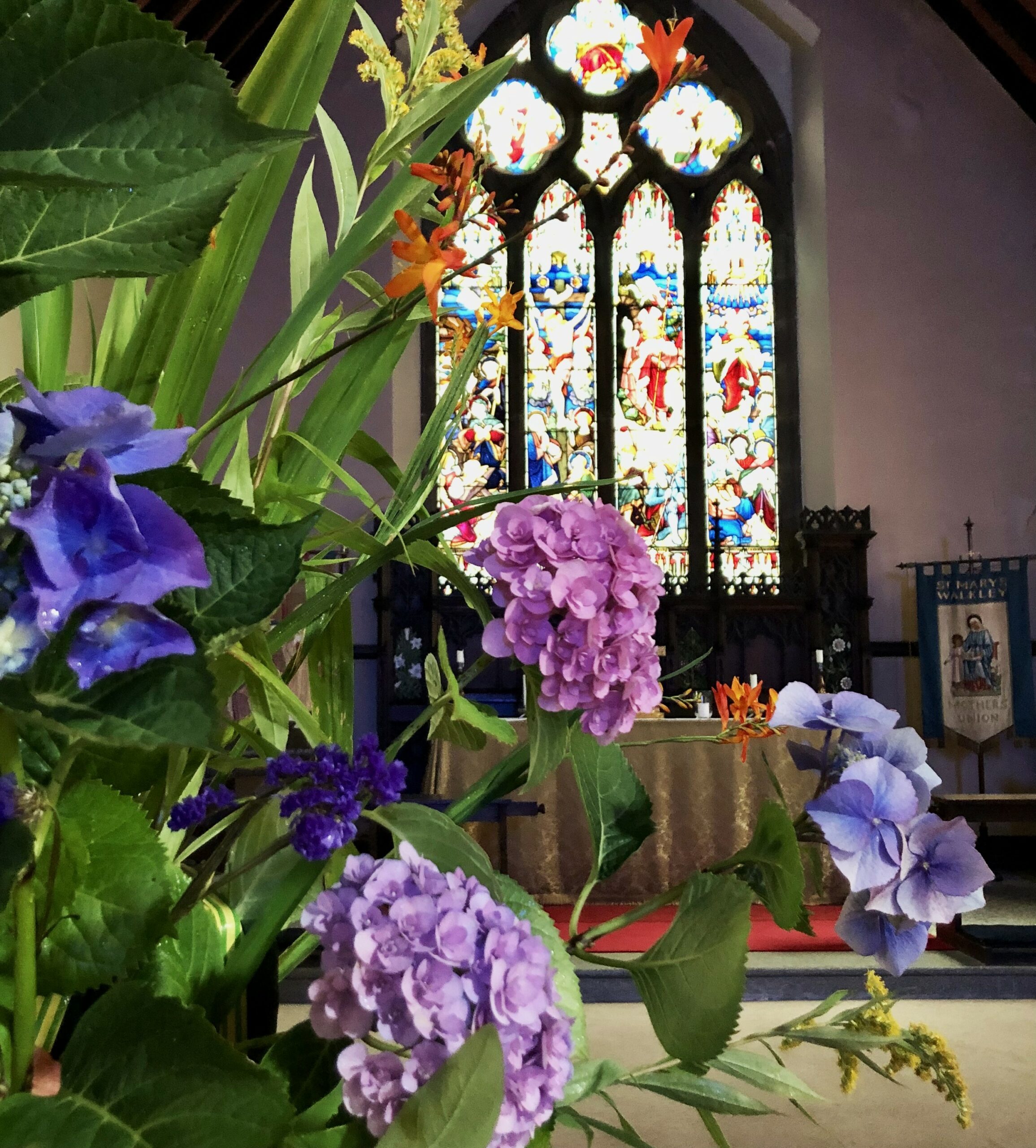
Watch this week's service on YouTube
Download the order of service here: 24 08 18 12th Sunday after Trinity Eucharist
Read this week's Church News
The Readings
Ephesians 5.15-20
Be careful then how you live, not as unwise people but as wise, making the most of the time, because the days are evil. So do not be foolish, but understand what the will of the Lord is. Do not get drunk with wine, for that is debauchery; but be filled with the Spirit, as you sing psalms and hymns and spiritual songs among yourselves, singing and making melody to the Lord in your hearts, giving thanks to God the Father at all times and for everything in the name of our Lord Jesus Christ.
John 6.51-58
'I am the living bread that came down from heaven. Whoever eats of this bread will live for ever; and the bread that I will give for the life of the world is my flesh.’
The Jews then disputed among themselves, saying, ‘How can this man give us his flesh to eat?’ So Jesus said to them, ‘Very truly, I tell you, unless you eat the flesh of the Son of Man and drink his blood, you have no life in you. Those who eat my flesh and drink my blood have eternal life, and I will raise them up on the last day; for my flesh is true food and my blood is true drink. Those who eat my flesh and drink my blood abide in me, and I in them. Just as the living Father sent me, and I live because of the Father, so whoever eats me will live because of me. This is the bread that came down from heaven, not like that which your ancestors ate, and they died. But the one who eats this bread will live for ever.’
Scripture Quotations are from: New Revised Standard Version Bible: Anglicized Edition, copyright © 1989, 1995 National Council of the Churches of Christ in the United States of America. Used by permission. All rights reserved worldwide. http://nrsvbibles.org
The Sermon
By Joe, Reader at St Mary's.
Back in the 1980s there was a comic strip called ‘Bloom County’,
which followed the adventures of a motley group of characters in a
fictional US community. One of the characters was a penguin called
Opus; in one strip he’s seen watching the TV news with the images of
war, terrorism, starvation, crime – you get the picture. He turns off
the TV, walks to the top of a hill, and sits down amongst the flowers.
The caption on this last picture is simply ‘Dandelion Break’.
Our passage from Ephesians begins with a call to wisdom:
“Be very careful, then, how you live—not as unwise but as wise,
making the most of every opportunity, because the days are
evil”
The days are evil – in Ephesus, in Bloom County, and in the world
today – it’s hard to argue with Paul. The days are evil; they’re scary;
they’re confusing.
Paul offers guidance, urging the Ephesian Christians to be vigilant
and discerning in their walk of faith. It also applies to us; be vigilant
and discerning; our world is full of temptation and distraction, and
evil days make it easier for us to throw up our hands and lose hope
and bury ourselves in those distractions.
As a Christian, living wisely means more than just making good
decisions; it involves aligning our lives with God's will. Paul contrasts
the life of wisdom with foolishness, and he emphasizes the
importance of understanding the Lord’s will. How often do we pause
to consider whether our daily actions, decisions, and attitudes reflect
God's will? The wisdom that Paul speaks of is not just intellectual
knowledge, but a deep, spiritual discernment that comes from a
close relationship with Christ.
Paul continues by instructing the believers to “be filled with the
Spirit” (Ephesians 5:18). This command is crucial, for it is the Spirit
that empowers us to live the Christian life. Without the Holy Spirit,
we are prone to fall into the traps of the world – lack of the Spirit has
us, as Malcolm Muggeridge once said, “going to and fro in the world
and up and down in it like Satan”.
Being filled with the Spirit allows us to align ourself with God; the
gifts of the spirit provide us with the tools we need to manage. The
spirit manifests in various ways: through joyful worship,
thanksgiving, and mutual encouragement, generosity, kindness, love.
Paul mentions “speaking to one another with psalms, hymns, and
songs from the Spirit”. We are reminded in an individualistic world
that our faith is not just a private matter; it is something we live out
in community, encouraging and building one another up in the Lord.
When we gather here every Sunday, we are not only expressing our
love for God but also reinforcing our shared beliefs and values. We
proclaim the truth of the Gospel; we show joy and gratitude; we
express our love of God; we express our love for one another. We
attempt to embody ‘living wisely’, and with luck we take that
attitude and expression of the Spirit out into the world when we
leave here.
We are reminded – and we all sometimes need reminding – that the
Spirit is within us, and that the Spirit is there to align us with God.
Which leaves us with a question; how do we stay strong in Spirit
when the world is the way it is?
In our passage from John, we encounter Jesus speaking about
Himself as the Bread of Life.
He says,
“I am the living bread that came down from heaven. Whoever
eats this bread will live forever. This bread is my flesh, which I
will give for the life of the world”.
Sounds familiar; we heard very similar words last week. THAT is how
important this is.
Jesus offers Himself as the bread that satisfies the deepest hunger of
the human soul. Unlike the manna that the Israelites ate in the
wilderness, which sustained them temporarily, the bread that Jesus
offers leads to eternal life.
Jesus is pointing forward to His sacrificial death on the cross, where
His body would be broken, and His blood shed for the forgiveness of
sins. By inviting us to eat His flesh and drink His blood, Jesus is calling
us into a deep and intimate union with Him—a union that is both
sacramental and spiritual.
At first glance, the messages of Ephesians 5 and John 6 might seem
unrelated, but they converge beautifully when we consider the
Christian life as a journey of wisdom, guided by the Spirit and
nourished by Christ Himself.
Living wisely, as Paul describes in Ephesians, requires us to be
constantly filled with the Spirit, who empowers us to walk in the
light. But how do we stay filled with the Spirit? How do we maintain
this divine wisdom? The answer lies in our continual communion
with Christ, the Bread of Life.
When we partake of the Eucharist, we are not just participating in a
ritual; we are receiving the very life of Christ into our own bodies and
souls. This sacrament nourishes us spiritually, strengthening us for
the journey of faith. It is in the Eucharist that we are most closely
united with Christ. Through the sacrament we are spiritually
renewed and purified, our spirits are lifted, we share a common
experience that unites us. The Spirit within us is renewed and
fortified, and we can then draw on this ‘fuelling up’ to enable us to
show the strength and discernment that Paul pointed out we need in
our lives.
There is a strong and genuine connection between our daily lives
with our work, friends and community and our sacramental lives as
Christians; we draw on the strength of the sacraments to feed and
nurture us. But Jesus is not just present in the sacraments, and in
this place of worship. He is present in every aspect of our lives.
We’re called upon to see the Christ in everyone, and in everything.
Every decision, every interaction, every moment of worship, every
aspect of our lives can become a means of encountering Christ if we
approach that moment with the wisdom and discernment that come
from the Spirit. We may occasionally drop the ball; that’s OK; just
return to the discernment and wisdom offered by the Spirit.
In this way, the wisdom we are called to live by is not separate from
our sacramental life. Rather, it is deeply intertwined. The Eucharist
sustains our walk of faith, filling us with the grace we need to live
wisely in a world that is often dark and confusing.
Our Dandelion Breaks are just a prayer, a thought, an opening up to
the Holy Spirit away from us.
The Prayers
Prepared by Barbara.
In the power of the Spirit and in union with Christ, let us pray to the Father.
O God, the creator and preserver of all, we pray for people in every kind of need; make your ways known on
earth, your saving health among all nations ...
We pray for all those affected by war, thinking particularly of people in Ukraine, Russia, the Gaza Strip and
Israel, but not forgetting conflicts such as those in Myanmar and Sudan. Please bring strength and comfort
to all those affected and help every one of us to be part of a path to peace throughout the world.
We pray for our new government here in the UK. Please help them to rebuild our services, especially the
NHS, social care and education, so that they are fit once more to serve all our people. Please help us to do
what we can to help them.
We pray for all those in the USA who will be voting this year to choose a new government for their country.
Please help all of those who can vote to consider the future of the world and what government would be best
placed to achieve a future free of war and able to support all the world’s population. Help them to vote for a
world that is more considerate of all its inhabitants, both human and non-human.
We pray also for all those involved in trying to fight the climate crisis, as we approach 1.5 degrees of
warming throughout the world. Please give all governments the political courage to resist further use of
fossil fuels and to invest in sources of renewable energy instead.
Lord, in your mercy
hear our prayer.
We pray for your Church throughout the world; guide and govern us by your good Spirit, that all who
profess and call themselves Christians may be led into the way of truth, and hold the faith in unity of spirit,
in the bond of peace and in righteousness of life ...
We pray especially for our worshipping community of St. John’s Ranmoor, St. Mark’s Broomhill and St.
Mary’s Walkley, that we may continue to bear witness to our faith in the way we live our daily lives.
We pray for all those involved in the Walkley Horticultural Show and Makers’ Market here at the end of the
month. Please help us to participate fully and to use this to help to build a strong and compassionate
community here in Walkley.
Lord, in your mercy
hear our prayer.
We commend to your fatherly goodness all those who are in any way afflicted or distressed, in mind, body
or estate; comfort and relieve them in their need, give them patience in their sufferings, and bring good out
of their troubles ...
We pray for all those employed in the NHS. We pray for all ambulance paramedics, giving thanks for their
service, covering all of Yorkshire. We pray for all A&E staff, from the receptionists to the medical staff and
porters, thanking them for their patience and care. We pray also for all medical and ancillary staff
throughout the hospital and ask that you help them to feel satisfaction in their work.
In moments of peace and contemplation, we name to you all those known to us who are suffering. Please
care for them and for all those of whose suffering we are unaware.
Lord, in your mercy
hear our prayer.
We remember those who have gone before us in the peace of Christ, and we give you praise for all your
faithful ones, with whom we rejoice in the communion of saints ...
We name to you in our hearts all those known to us both near and far who are suffering the loss of friends
and loved ones, asking that you bring your comfort and healing to them at this time of grief.
Merciful Father,
accept these prayers
for the sake of your Son,
our Saviour Jesus Christ. Amen.
Common Worship: Services and Prayers for the Church of England, material from which is used here is copyright (c) 2000 The Archbishops' Council


